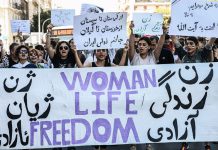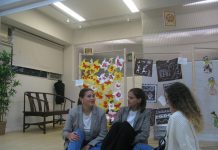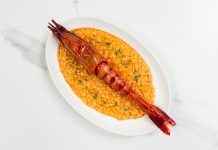Talking about his marathon experience in the 113th Boston Marathon, Fung gets fired up when he remembers the respect Bostonians showed him. The Boston Marathon is the world’s oldest annual marathon race and one of the five World Marathon Majors. When he crossed the finish line he was greeted with joyful congratulations.
Despite the dividends for Hong Kong runners to race overseas, it is not always easy to arrange. “The most difficult things are money and holidays,” says Chong Hiu-yeung. “You cannot travel too much when you have a job.”
Fung has some tips for those who manage to find the time and money. He chooses races which are not too difficult in cities with nice weather. Ease of application and convenient transportation are also factors.
For example, it is easy to find information about marathons held in mainland cities online but it is rather complicated to register for the races because they do not usually accept credit card payment. Overseas, Eastern European races are less popular with Hong Kong runners because they are difficult to get to.
You can either organise your own trip or use the travel agencies and marathon clubs that organise tours for runners in international marathons like those in Taiwan and Seoul or further afield in Europe and the Gold Coast in Australia.
The costs are not as high as might be expected. For short trips in East Asia, such as Korea and Taiwan, it usually takes only four to five days and cost HK$4,000 HK$5,000 per person, in Fung’s experience. Trips to Japan and long-haul destinations like Europe or the US are more expensive. They usually take more than a week and cost at least HK$10,000. However, Fung says there is no big difference between marathon trips and ordinary travelling. “You only need to take one day to run and a little time on the day before to check out the route,” Fung adds. “Then, you can travel around according to your trip schedule.”
The most popular race in Asia for Hong Kong people is the Tokyo Marathon held in February every year. The last race attracted 330,000 applicants but only around 33,000 participants took part after their names came up in a lucky draw. Organisers encourage foreign runners to take part in order to promote international friendship. The first 3000 runners who apply as charity runners are guaranteed a place.
According to the marathon’s organisers, there were more than 2,787 foreign runners in this year’s race, of which 534 were from Hong Kong or China.
Fung has taken part in the Tokyo Marathon twice and each time found there were many Hong Kong people participating. He says the event is like a “carnival”. The Japanese applaud and cheer on the runners and prepare food for everyone to enjoy.
Although the application fee costs over HK$1,200, Fung believes it is well worth it.
Fung believes from the evidence of his own overseas travels that more and more Hong Kong people are taking part in marathons abroad. “If you are free and able to run in a marathon race, you will definitely want to try overseas races. You can feel it is different as you run,” he says.






































